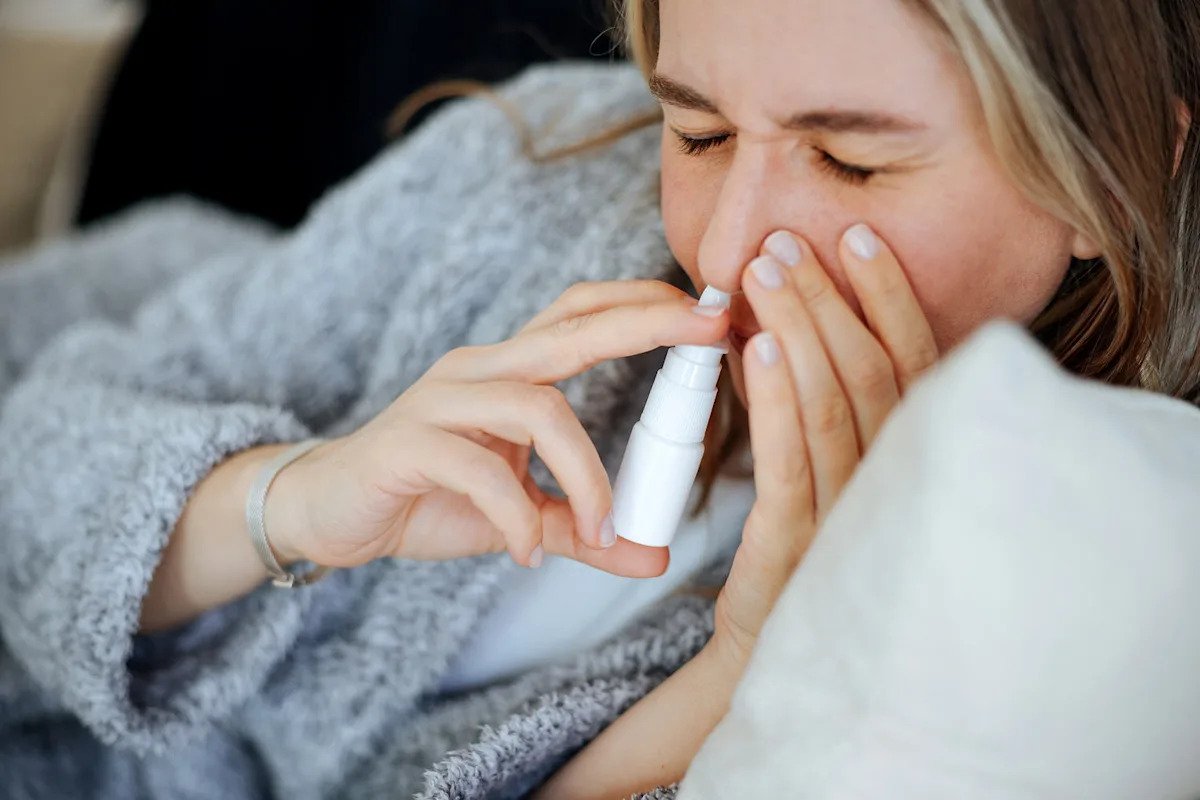Lifestyle
A common nasal spray may block Covid infection, trial results indicate

An over-the-counter nasal spray which has been used for years as a safe and effective treatment for seasonal allergies could potentially prevent Covid infections, according to clinical trial results released Tuesday.
The antihistamine azelastine works as an antiviral against a range of respiratory infections, including influenza, RSV and the virus that causes Covid, a growing number of studies have shown.
German scientists at Saarland University Hospital recruited 450 adults, mostly in their early 30s. The first group of 227 participants tested a puff of the nasal spray in each nostril, three times a day. The other 223 were instructed to do the same, but with a placebo spray.
All participants were given Covid rapid tests twice a week over the course of nearly two months. By the end, the incidence of Covid infections in the azelastine group was 2.2%, significantly lower than the 6.7% infection rate in the placebo group.
Azelastine also appeared to reduce rates of other symptomatic respiratory infections, in general, the study published in JAMA Internal Medicine, found.
The researchers said they were not entirely sure why azelastine appears to be effective at limiting Covid infections, but they suggested that it might bind to the virus in the nasal mucosa, the moist membrane lining the nose which pathogens must navigate to enter the body, and inhibits a key enzyme that it uses to replicate.
Another possibility is that azelastine interacts with the ACE2 receptor, the preferred entry point which the Covid virus uses to access human cells, and prevents it from latching on.
“Our findings suggest azelastine could serve as a scalable, over-the-counter prophylactic against Covid, especially when community transmission is elevated or in high-risk settings such as crowded indoor events or travelling,” said Dr. Robert Bals, professor of internal medicine and pneumology at Saarland University and the study’s senior author.
The trial had limitations, namely that the participants were all young and relatively healthy, he said.
Bals said that azelastine should not be seen as a replacement for vaccinations, and larger studies were needed before recommending it as a routine preventative measure for the general public, and especially vulnerable groups.
Dr. William Messer, associate professor of molecular microbiology and immunology at Oregon Health & Science University, who was not involved with the trial, described the findings as “reasonably convincing” as a way to reduce overall risk, but noted the intense regimen of daily sprays used in the trial.
He questioned whether it might be easier to wear a mask to prevent Covid infections.
“The mask may be more awkward and annoying but might be easier to comply with than remembering a thrice-daily nasal spray day after day,” Messer said.
Still, “I would not discourage someone interested in giving it a try,” he said.
Other researchers called for more data demonstrating that the spray is effective in high-risk groups such as the elderly and immunocompromised who are most in need of measures to prevent infections.
Dr. Peter Chin-Hong, professor in the UCSF Health Division of Infectious Diseases, said that azelastine could find a niche as an additional Covid-blocking tool for people who already use the spray for seasonal allergies, but felt that there is insufficient evidence to endorse it more widely.
“While promising, I don’t think it’s prime time to recommend this to block transmission,” he wrote in an email. “For those 65 and older, I would still continue to recommend vaccines as my number one defence against Covid.”
However, Chin-Hong said that the results of this trial provide further indication that the nasal mucosa could be a vital target for future vaccines against Covid and other respiratory viruses as a better way of blocking infections.
“The current Covid vaccines clearly do not do a great job of protecting against infections,” he said. “We need more mucosal vaccines for respiratory viruses. There’s one which is widely used for influenza, and there’s been ongoing work in mucosal vaccines for coronaviruses, but we need to continue to advocate for federal prioritization and support of these initiatives.”
This article was originally published on NBCNews.com
